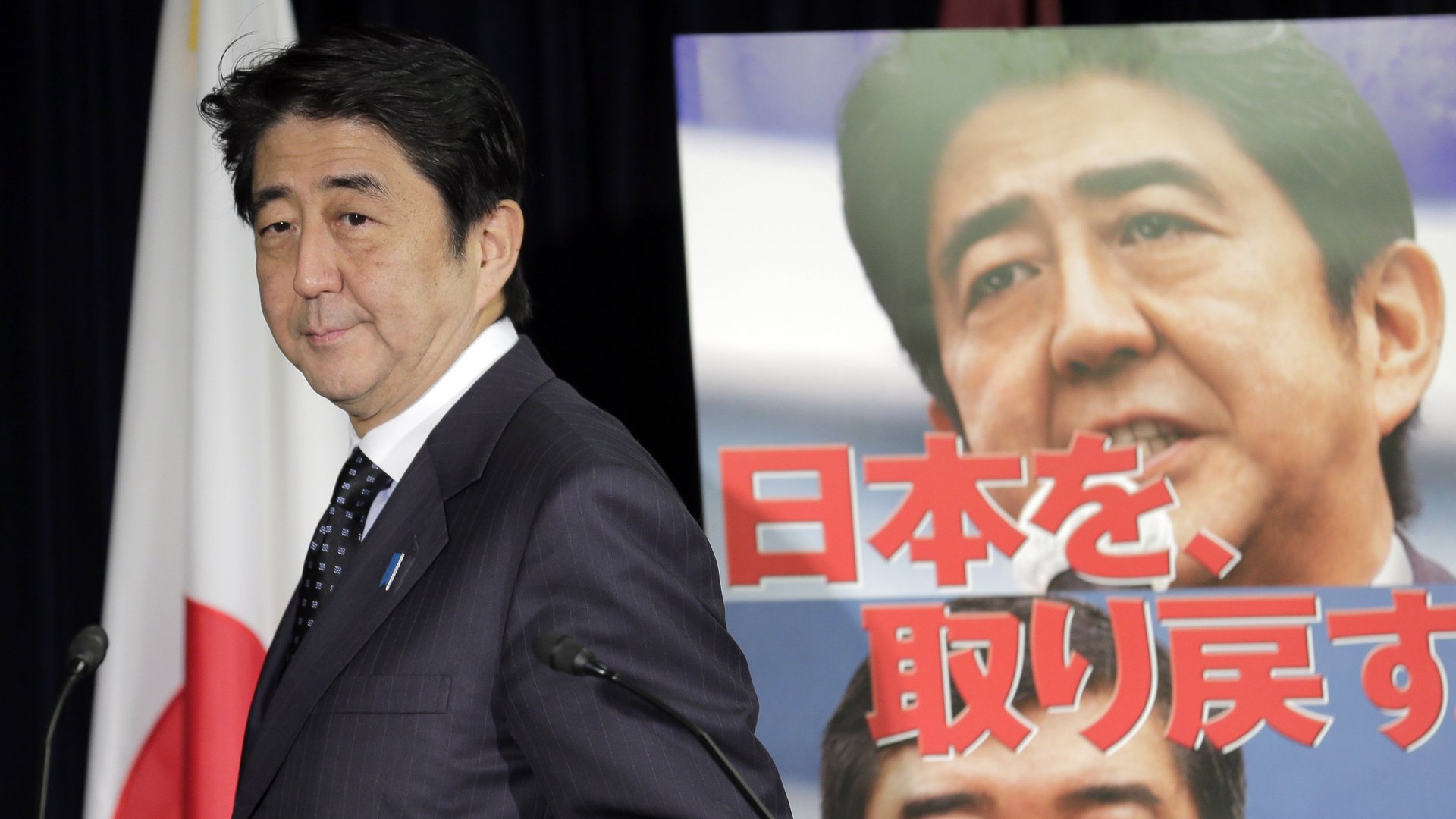Snap election will keep Japan from falling off its own fiscal cliff
Another major world economy, another election. Japan’s prime minister, Yoshihiko Noda, dissolved the lower house of Japan’s parliament today, setting the stage for a general election in December. This is good news for the world’s third-largest but ailing economy. Here’s why:


Another major world economy, another election. Japan’s prime minister, Yoshihiko Noda, dissolved the lower house of Japan’s parliament today, setting the stage for a general election in December. This is good news for the world’s third-largest but ailing economy. Here’s why:
Japan avoids running off a fiscal cliff. Noda agreed to fresh elections in exchange for consent from opposition parties to issue “deficit bonds” to fund government operations until the end of the year. The deal also allows the bonds to be issued for three years instead of just one as previously proposed. This gives the government more time to get its budget in order.
More spending would help a shrinking economy. Cabinet office data on Nov. 11 showed that Japan’s economy shrank 3.5% on an annual rate from July to September, the fastest contraction since last year’s earthquake. If the economy shrinks further this quarter, which is expected, this will be Japan’s third recession since 2008. (Some economists think Japan is already in a recession.)
Individual consumption and reconstruction efforts after last year’s earthquake and nuclear crisis helped growth, but both have softened. More aggressive stimulus measures would help counteract that as well as weak global demand and political tensions with China. The opposition party expected to take power after the election, Japan’s Liberal Democratic Party, is likely pressure the central bank to issue more monetary easing and raise its inflation target to 1% from the current rate of 3%, says analyst Scott Seaman of the Eurasia Group in Washington, DC. Moreover, he says, “A change of government by year’s end will put the LDP… in control of the budget process, making it likely that more fiscal stimulus will be directed to infrastructure and other reconstruction projects that benefit that party’s traditional support groups in the public works sector.”
The government could be empowered… for now. An early, snap election in December gives new parties little chance to consolidate, Seaman notes, giving Japan’s two main parties, the LDP and Noda’s Democratic Party of Japan, a better chance of forming a majority government. Any other other combination of a coalition would mean the government would lack a majority in the parliament’s upper house, hampering policy decisions, according to Seaman. In other words, Japan would be back where it is now.
But Japan faces many other real challenges. One is what seems like the constant revolving door of Japanese leaders, making for inconsistent policies and insecurity for investors. (If Noda is unseated, this will be Japan’s seventh prime minster since 2006.) The ratings agency Fitch has already said this week that it is concerned about political dysfunction in Japan. Some fear an LDP-led government would also ratchet up tensions with China over a set of islands in the East China Sea.
Japan has an incredibly high ratio of debt to GDP: 205% in 2011, according to the CIA World Factbook, which means Japan has one of highest rates of any industrialized country. With an aging population and lower domestic consumption, the government has long relied on borrowing over taxes to finance operations. Avoiding the fiscal cliff is good, but it can’t kick the the can down the road forever.